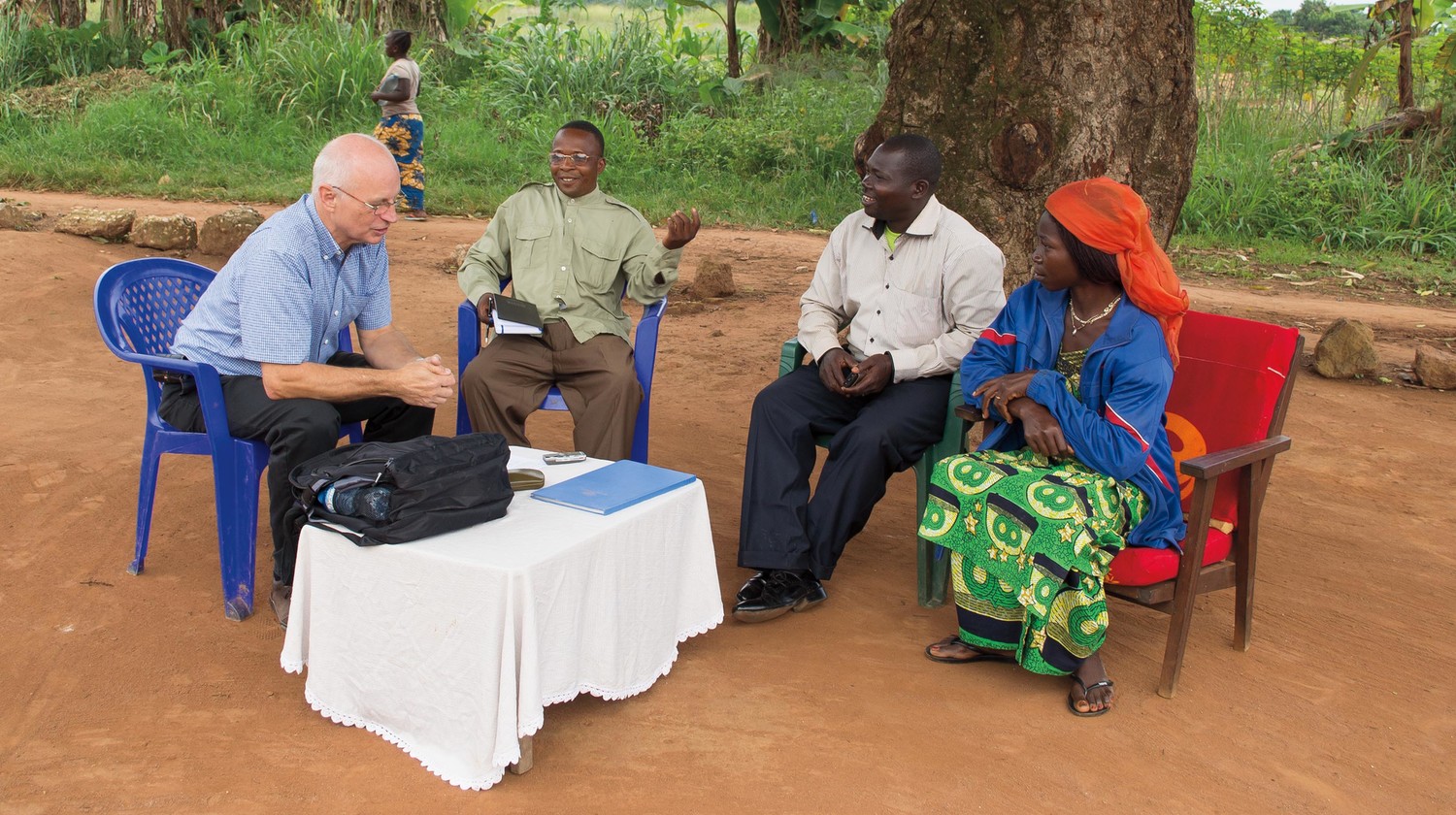It would be difficult to find a more diverse class than the group Jonathan Kim taught this past June. Standing in front of a small group of students gathered at Tyndale Intercultural Ministries Centre in Toronto for a two-week missions course, Jonathan pointed out that there were nearly 10 different ethnic groups represented in the class.
Surrounding one table are a pair of Korean men, a Dutch-Canadian man and a man from Mainland China. At another table are a group of women: a Jamaican, a Portuguese, an African-American and a Canadian.
Jonathan was born and raised in Korea, while his partner in teaching the class, Robert Cousins, is Irish.
Jonathan explains to the multi-ethnic, multiracial class that it is like the global Church, before issuing a challenge. “The mission is to bring the gospel to all nations and in Toronto, the nations are on your doorstep.”
For Jonathan, 48, and his wife Bonnie, 46, the mission field is now Toronto, but for more than eight years, from 2000-2008, their focus was in Central Asia where they worked in translation with Wycliffe. The task then was to help devise an alphabet, create literacy material, and translate the Bible for a language group there.
Now the task is to take what they learned in the field and walk in a new calling—Jonathan as a professor and Bonnie as a counsellor and member-care consultant for Wycliffe Canada.
“What I learned is that relationships are important,” Jonathan explains in the cafeteria between classes. “As a Wycliffe member, I tend to be task oriented, and we as an organization tend to be task orientated.”
Both Bonnie and Jonathan confide that while they were on assignment overseas, they felt isolated with no one to talk to about the unique challenges of translation work. Then, when they were finished their mission, they were left asking themselves what was next.
“All I knew was Bible translation,” explains Jonathan. “All of a sudden I’m not doing that. I tried to grapple with the reality of, ‘What does this mean to me? What does it mean for my family?’ ”
Struggle Leads to a New Calling
When they returned from Central Asia in 2008, they prayed, regrouped and evaluated what their greatest passions were.
“Drop all expectations,” Jonathan told Bonnie. “Drop all you’re supposed to do. Think about what you want to do.”
Bonnie reflected on life in Central Asia. The main goal was Bible translation, but where she found her passion was in the conversations with other missionaries who often came to their home to talk about their struggles.
“We found ourselves doing a lot of informal counselling,” Bonnie explains. “Both my husband and I have a heart to see people thriving and growing in their journey.
“We saw that a lot of missionary families are suffering,” Jonathan adds. “The relationship between husband and wife was not going well, the relationship with their children may not be going well, but mission agencies and their sending church have little idea.”
Jonathan says struggling missionaries are not as effective in their ministries as they could be because they are often reluctant to share their problems with peers and supervisors. They believe they may be viewed as not successful enough to remain in the organization.
So, the couple decided to do something about the needs they saw. Bonnie began working toward her counselling credentials and is now a student counsellor in Tyndale’s counselling department.
As a member-care consultant for Wycliffe, her main role is to organize and run week-long re-entry programs for returning missionaries. In the future, however, she hopes to gain a bigger role in connecting and caring for them.
“It’s in the very beginning stages of how to do it, but in the long run, my primary interest group is missionaries who are coming back and taking a few months rest; where I will be able to provide professional care.”
Teaching Future Missionaries
While Bonnie chose counselling, Jonathan saw teaching as his new path. In 2009, he began his PhD studies in education at Trinity International University in Deerfield, Ill.
Today, he teaches intensive cross-cultural mission training and language courses at Tyndale to missionaries and churches. His position was created through a partnership agreement between Tyndale and Wycliffe.
Jonathan’s hope is to equip and empower missionaries and churches with what he sees lacking in the mission field and in home churches.
When Jonathan was in Central Asia he saw that his translation work was not as effective as it could be because of a lack of multi-cultural training.
In Jonathan’s June class, he taught the group how every person has a cultural mindset. However, we accept, adapt, minimize or deny the differences of cultures. The course is meant to have the students become more self-aware of how differences in cultures affect relationships and ministry.
Bi-focals
According to Jonathan’s co-instructor, Robert Cousins, Jonathan is the perfect person to teach this course. He teaches with a humble, but vast perspective. He knows what it’s like to be out of place in an alien culture. In fact, with all the different cultures he and Bonnie have lived in, they could multiply that feeling several times over.
When Bonnie counsels returning missionaries at the re-entry program, she knows how the missionaries feel. She understands the isolation and confusing feelings they have associated with returning from an assignment.
Jonathan and Bonnie may not be overseas as missionaries anymore, but it’s clear their impact for Wycliffe is just as important.
1 Corinthians 12:12 (ESV) reminds us that, “For just as the body is one and has many members, and all the members of the body, though many, are one body, so it is with Christ.”
The Kims are an important part of the body of Christ and of Wycliffe, as they empower fellow missionaries to serve better overseas.
•••••
